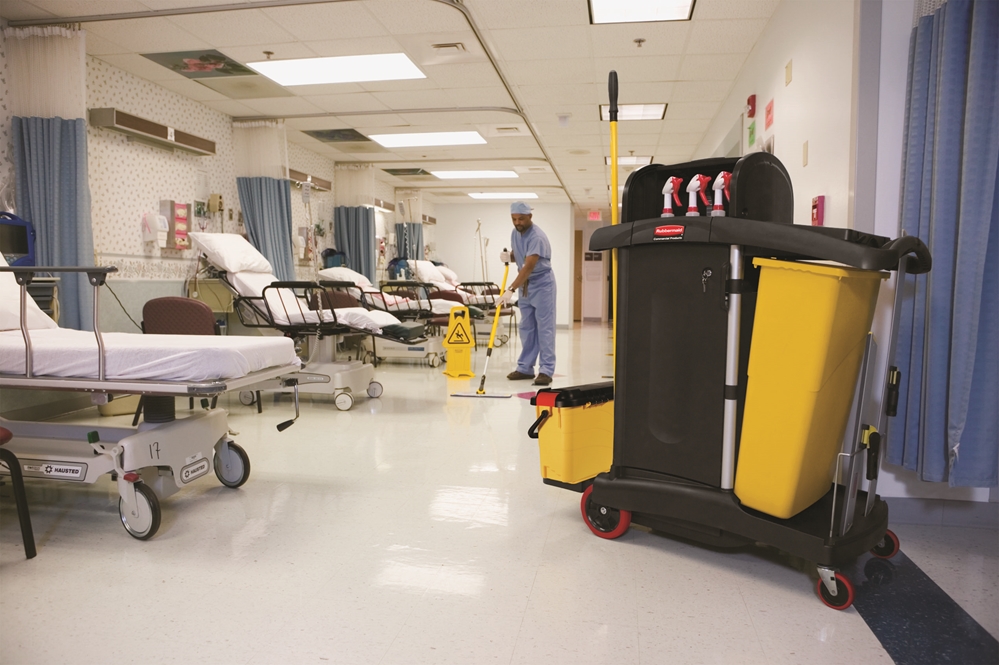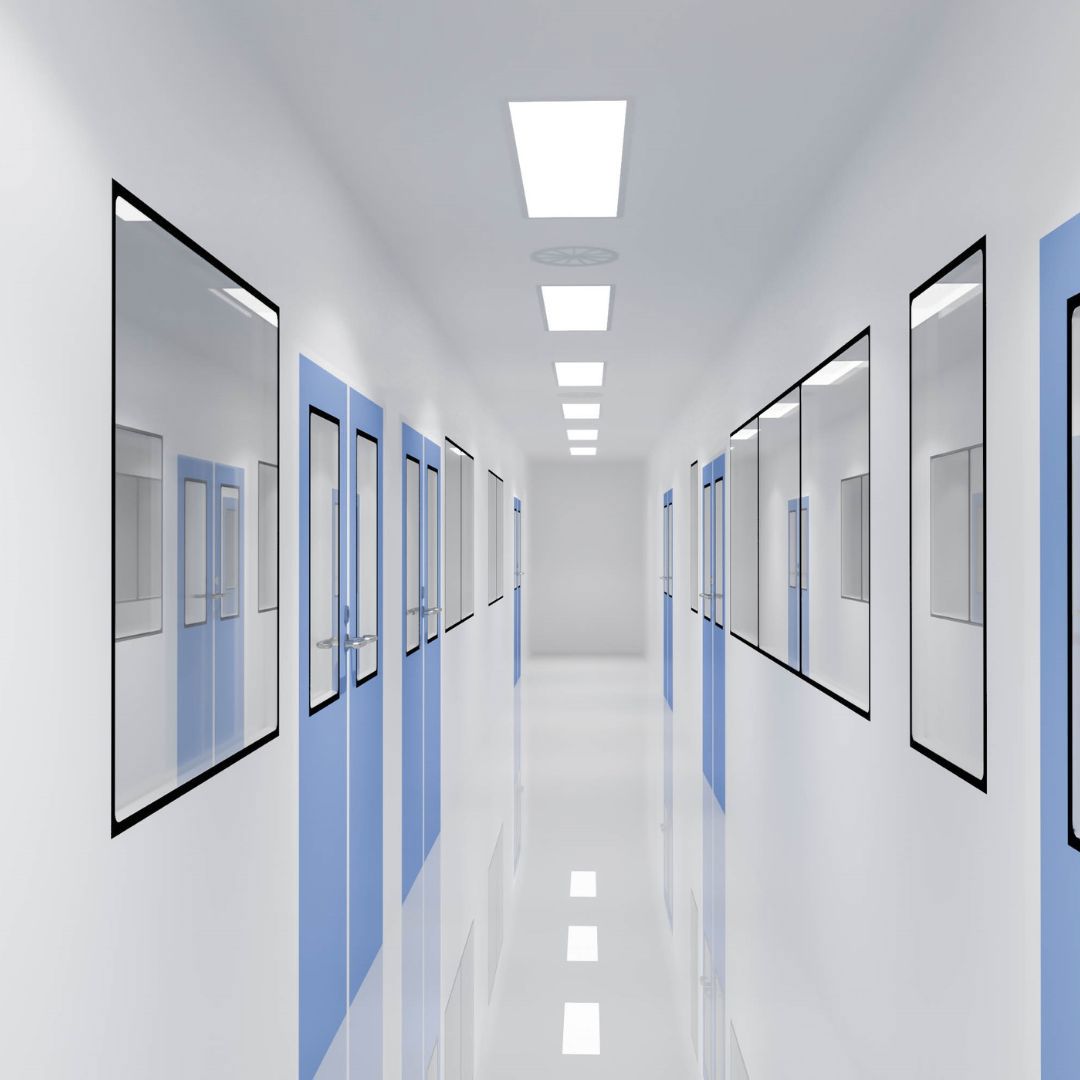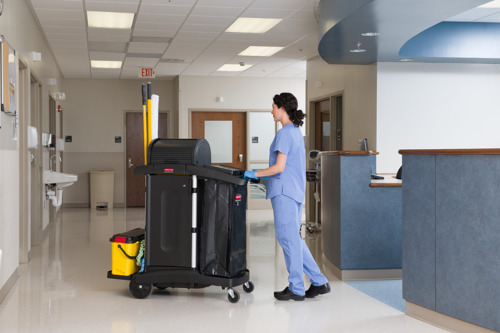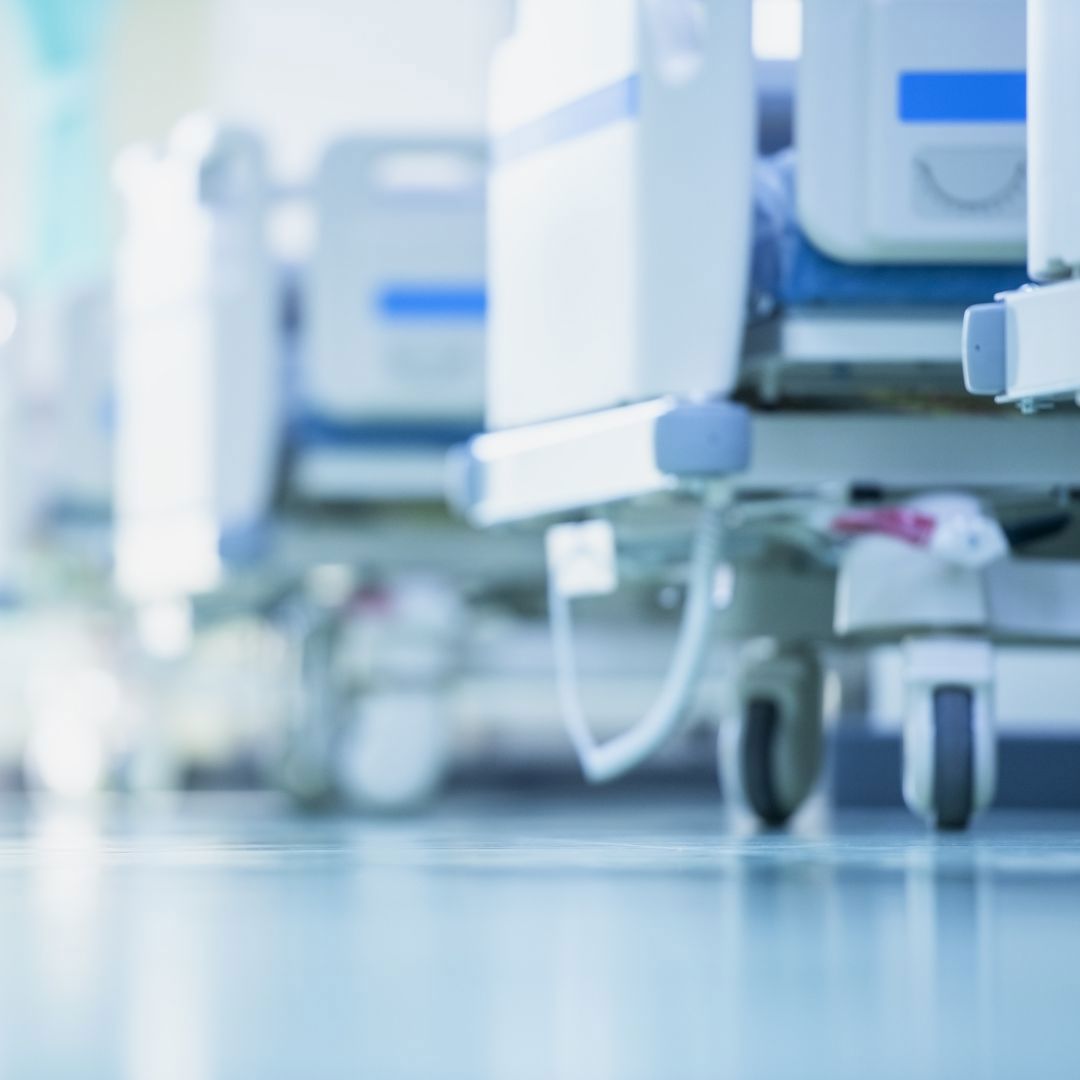
Hospital Associated Infections (HAIs) are a leading cause of sickness in Australians, with over 165,000 cases recorded each year according to NSW Health. Not only do they impact patients who are already in the hospital, but HAIs can also impact visiting guests, meaning both healthy individuals and health-compromised ones are at risk. The fast spread of HAIs was most predominately seen through the peak of the COVID-19 outbreak. During this time, several people contracted the virus simply by attending a hospital for their own healthcare needs or to visit a family member or friend.
Though businesses within the healthcare industry may never have the capacity to fully eradicate HAIs implementing effective cleanliness and infection control protocols can make a monumental difference. Therefore, the following blog showcases what owners and employees of these facilities must do to better protect their patrons. Throughout, the Rubbermaid Commercial team will also recommend the appropriate cleaning and sanitisation tools to achieve the highest level of cleanliness.
Wash all linen regularly, including privacy curtains, to prevent HAIs
Unfortunately, due to the fast turnaround in many hospital environments, privacy curtains are often left unchanged for days, weeks and even months. Some hospitals are opting for disposable curtains to manage this change. However, for premises that are still using reusable cloths, it’s imperative to wipe them down between use with an HYGEN microfibre cloth and your choice of sanitiser solution. This will ensure bacteria and infectious pathogens are eliminated. This can ensure that the next guest staying in the room is at low risk of contracting any viruses previous patients may have had.
At the end of each week, hospitals must wash these reusable privacy curtains to prevent an excessive build-up of harmful microbes. Using a Rubbermaid cleaning or housekeeping cart to collect old curtains and store new ones can ensure each room is refreshed efficiently. Hospitals should also consider having a designated cleaner charged with looking after the cleanliness of privacy curtains. This can ensure no room or patient bed is missed.

Guarantee bathroom floors are cleaned and sanitised every two hours
In high-volume hospital and healthcare settings, cleanliness may be overlooked, particularly due to staff shortages. Hospital owners and operators must be mindful that regular cleaning and sanitisation are vital to preserving patient health and certifying they can return to their regular life in no time. Though patients may not necessarily directly touch bathroom floors with their hands, bathrooms are often left warm and dark when not in use. This means that any bacteria which spread from their shoes or potential faeces on the floor will have the opportunity to spread rapidly, potentially infecting patrons in the bathroom.
As there is likely to be blood, urine and other bodily waste on the floor of hospital bathrooms due to patient illnesses or poor mobility, they must be cleaned every two hours with an HYGEN Disposable Mop Head. These mop heads remove 99.99% of microbes from the floor. They can also be disposed of at the end of each working day or when soiled. They are fully functional, using just the water from a bathroom tap, meaning they reduce the risk of contaminating the floor as they don’t use infectious, dirty mop bucket water.
Our blog, The benefits of using disposable mop heads in hospital settings, discusses these benefits in further detail.
Guaranteeing all single-use equipment is disposed of effectively can reduce HAIs
Due to the nature of hospitals, many pieces of equipment, such as oral care supplies, must be discarded after each use. Not disposing of them properly can infect surfaces on the premises, causing bacteria to spread to patients, staff and family members. It can also create a dirty-looking environment, which can make patients uncomfortable, as they don’t feel their hygiene needs are met.
After using single-use hospital materials, including rubber gloves, nurses, doctors and staff must be sure to dispose of them in the appropriate bins. Though staff can use the bins in patient rooms, this is not recommended as guests, particularly children, who are visiting may unintentionally become exposed to bacteria and fall victim to HAIs.
Storing a Slim Jim Untouchable 87L Square Black bin with the appropriate lid behind nurse stations and using this to dispose of waste can ensure all waste is kept safely out of reach. The Rubbermaid Commercial team also recommends lining this with the appropriate bin liners to prevent contaminating the inside of the bin container.

Helping Hospitals Remain Clean and Infection-Free
The Rubbermaid Commercial Products team is passionate about helping hospitals and healthcare settings achieve a higher level of clean. On top of these product recommendations, the team has a wide variety of Healthcare Resources to help all staff execute best practices when cleaning and sanitising surfaces and high touch points.
If you are an owner, manager or employee of a hospital setting, the Rubbermaid Commercial team is happy to make the appropriate recommendations to suit your premises. Contact the team today or take a look at our e-catalogue to get started.